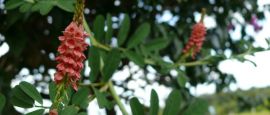French Guiana Health Care and Vaccinations
| Title | Special precautions |
|---|---|
| Diphtheria |
Sometimes |
| Hepatitis A |
Yes |
| Malaria |
Sometimes |
| Rabies |
Sometimes |
| Tetanus |
Yes |
| Typhoid |
Yes |
| Yellow Fever |
Yes* |
There are medical facilities in Cayenne, Kourou and St Laurent du Maroni but very few elsewhere. Medical insurance is advisable.
Mains water is normally heavily chlorinated and, whilst relatively safe, may cause mild abdominal upsets. Bottled water is available and is advised for the first few weeks of the stay. Drinking water outside main cities and towns is likely to be contaminated and sterilisation is considered essential. Milk is unpasteurised and should be boiled. Powdered or tinned milk is available and is advised. Avoid dairy products which are likely to have been made from unboiled milk. Local meat, poultry, seafood, fruit and vegetables are generally considered safe to eat.
Hepatitis B and D are highly endemic. American trypanosomiasis (Chagas disease) occurs. There is a slight risk of rabies if in contact with wild animals. For those at high risk, vaccination before arrival should be considered. If you are bitten, seek medical advice without delay. Mosquitos in the area can transmit dengue fever.
Do you have any Feedback about this page?
© 2026 Columbus Travel Media Ltd. All rights reserved. No part of this site may be reproduced without our written permission, click here for information on Columbus Content Solutions.








 You know where
You know where